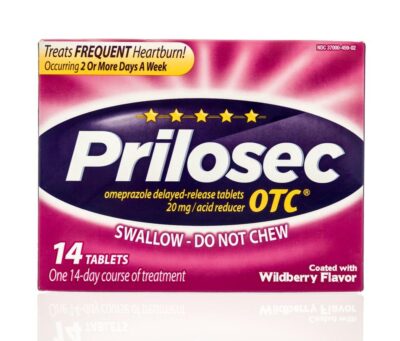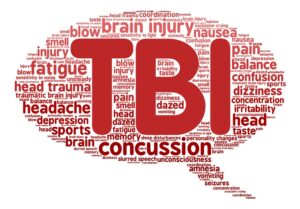
Notice: Thank you for visiting our informational page regarding Prilosec and Nexium Lawsuit. At this time we are no longer accepting cases regarding Prilosec and Nexium Lawsuit cases. However, if you feel that you have any questions about other defective medical devices, dangerous drugs, recalls, or any additional legal concerns that we may help you with, please call us or fill out the evaluation form.
Prilosec and Nexium are among the most popular medicines for acid reflux and recurring heartburn. Millions of Americans take these drugs, and for years we were told that they’re safe. But both Prilosec and Nexium can actually cause severe damage to the kidneys or even kidney failure and death.
Neither doctors nor patients were warned of these risks by AstraZeneca, the maker of the drugs. If you or a loved one experienced kidney problems, bone fractures, or other serious medical conditions while taking Prilosec or Nexium, you need to speak to a Prilosec Nexium lawsuit attorney.
How do Prilosec and Nexium work?
Nexium and Prilosec are part of a class of drugs known as “proton pump inhibitors” or PPIs. PPIs reduce the amount of acid in the stomach by chemically blocking structures in certain cells that secrete hydrogen to create stomach acid. By shutting down these proton pumps, the medication can reduce the acidity in the stomach. All PPIs work this way.
There is no doubt that PPIs are effective. They can:
- Quickly stop heartburn or GERD/acid reflux
- Soothe esophagitis (inflammation of the esophagus from too much acid) or ulcers
- Reduce the chance of recurring esophagitis or other long-term effects of acid reflux
Because PPIs provide so much relief, they’ve become a very popular drug. Over 15 million Americans use PPIs, with Prilosec and Nexium among the most common. But many people end up taking these drugs too long, even long after the drug is no longer needed. This is often when problems start to arise.
Get the strong arm
What Problems Can Prilosec and Nexium Cause?
These drugs have many potential side effects. One of the most serious is one that patients were not warned about: the risk of serious kidney damage. PPIs can cause acute kidney injury and inflammation of the kidneys, and long-term use of Prilosec or Nexium may cause chronic kidney disease.
Chronic kidney disease (CKD) is a permanent, life-threatening condition where the kidneys slowly stop working. With this condition, the kidneys lose their ability to function over the course of several months, often with no symptoms until they’ve almost completely failed. Without dialysis or getting a kidney transplant, CKD can lead to renal failure and death.
The connection between Prilosec, Nexium and CKD is well established. A study of over 10,000 patients found that those using PPIs had a 20% to 50% higher risk of chronic kidney disease. And these individuals have twice the risk of dying prematurely. These medications also affect bone health and can lead to an increase in fractures of the hip, wrists, and other fragile areas.
Who Is at Risk from Taking Prilosec and Nexium?
Anyone, even an otherwise healthy person, faces potential kidney complications from using these drugs. Long-term use is associated with greater risk. Doctors are now starting to limit the length of time a patient can be on Nexium, but there are many patients who have used it for years. This is the group most likely to develop CKD.
Those who use these medications in higher doses are at significantly higher risk of kidney problems. The risk of bone fractures is greatest for patients who have used Prilosec or Nexium a year or more, and those over the age of 50.
Difference Between Prilosec and Nexium
The two drugs are nearly identical. Nexium is the newer drug, but it doesn’t offer any substantial advantages over Prilosec. Both have essentially the same active ingredient.
AstraZeneca created Nexium purely to get more profit out of Prilosec. Prilosec’s patent was about to expire, which would allow other companies to make cheaper versions of it and eat into AstraZeneca’s profits. To prevent this, Nexium, a new drug with a fresh patent, was created by taking the same molecule that’s in Prilosec and splitting it in half.
The two drugs are equally effective. Some studies suggest that Nexium is slightly better at soothing esophagitis, but other studies don’t. Nexium, Prilosec, and the generic omeprazole all carry the same risks for bone fracture and kidney damage.
Liable Parties in a Prilosec or Nexium Lawsuit
AstraZeneca is directly responsible for serious health conditions caused by these drugs. Under the law, they knew or should have known the full side effects of their product before marketing it. They did not make doctors aware of the risk of chronic kidney disease and renal failure, and as a result, countless patients have been put at risk.
The use of Prilosec is often unnecessary. It’s given to many patients who have occasional heartburn, rather than a serious condition. Up to 70% of prescriptions may have been given inappropriately, and at least 25% of Prilosec users could stop taking it and with no risk of relapse. There are also safer heartburn drugs, called H2 blockers, that simply don’t cause CKD.
Your Prilosec/Nexium lawsuit lawyer can investigate the details of your case and help you hold the parties responsible for your suffering. The negligent company that produced the drug and the medical professionals who possibly overprescribed it to you should be liable for their actions.
Compensation Can You Seek in a Prilosec or Nexium Lawsuit
If you’ve been injured by taking Prilosec or Nexium, there are several types of damages you could possibly qualify for. A lawyer can review your case and advise you best on any of the following damages to include in your claim:
- Past and future medical expenses
- Past and future pain and suffering
- Past and future wage loss and loss of future earning capacity
- Past and future loss of enjoyment of everyday living
In some cases, you may also be able to file for punitive damages to punish the other party for their careless behavior. Your lawyer can best advise you on how to proceed.
Costs to Hire an Attorney to Help You With Your Claim
Many personal injury law firms work on contingency, so you don’t have to pay a dime upfront to hire them for your case. Your Prilosec or Nexium lawsuit lawyer will only get paid if they can win your case for you. If you don’t win, you won’t owe them anything.
Statute of Limitations for Your Nexium or Prilosec Claim
Time is limited with collecting damages for your pain. The longer you wait to pursue your Nexium or Prilosec lawsuit, the harder it may be to prove as evidence tends to disappear with time.
You may have only two years, according to Georgia law §9-3-33, to pursue your claim from the date you first began experiencing symptoms. Talk to an experienced Georgia law firm before it’s too late.
A Prilosec and Nexium Lawsuit Lawyer Can Work for You
Your lawyer will work on your defense while you focus on healing. When they manage Services we offer may include:
- Speaking with you in-depth to get a complete understanding of your case, answering your questions, and keeping you updated as your lawsuit progresses
- Handling the legal paperwork, navigating the relevant laws, and ensuring that your lawsuit is filed in court before the statutes of limitations expire
- Obtaining evidence that demonstrates the liability of the party that caused your injuries, such as medical reports, and the extent of your damages
- Speaking with medical experts to determine how this medication and your medical condition will impact your future
- Negotiating for a settlement with the responsible party’s insurance company
A Prilosec and Nexium lawsuit lawyer can advocate for you to receive a fair and reasonable claim from the liable party’s insurance company. If they are not willing to offer one, your case can be taken to court.
Contact an Attorney Today for Help Handling Your Prilosec or Nexium Lawsuit
If you or someone you love suffered chronic kidney disease, a kidney injury, broken bones, or any other serious problem while taking a defective drug like Prilosec or Nexium, our defective drug recall lawyers can help. The attorneys of John Foy & Associates are experienced at handling medical cases like yours.
We may be able to get you a financial recovery that could pay for lost work time, existing medical bills, and long-term treatment. We offer a FREE consultation and we charge nothing unless we get you a financial recovery. Call today.
(404) 400-4000 or complete a Free Case Evaluation form





